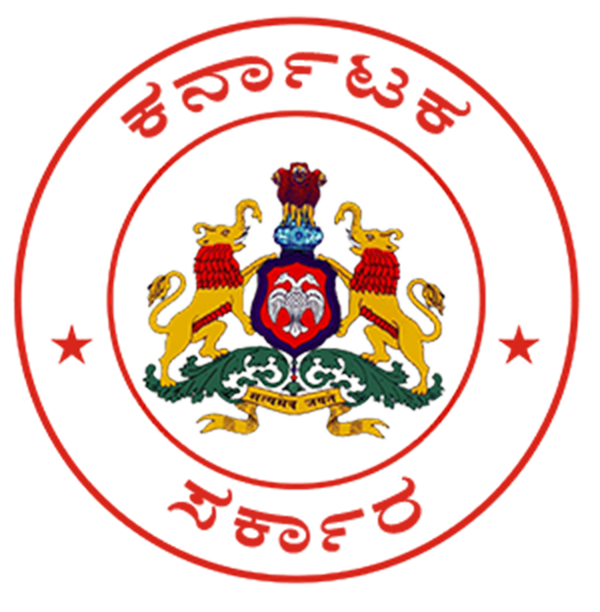The Present Tense
1. The simple present tense
In simple present tense, the verb iru is used. It is used in accordance with the gender and number. Examples:
| ನಾನು ಇದ್ದೇನೆ | I am (here) |
| ನಾವು ಇದ್ದೇವೆ | We are (here) |
| ನೀನು ಇದ್ದೀಯೆ | You (sing.) are (here) |
| ನೀವು ಇದ್ದೀರಿ | You (pl.) are (here) |
| ಅವನು ಇದ್ದಾನೆ | He is (here) |
| ಅವಳು ಇದ್ದಾಳೆ | She is (here) |
| ಅದು ಇದೆ | It is (here) |
| ಅವು ಇವೆ | They are (here) |
The simple present tense is also formed without a verb.
| ನಾನು ವಿದ್ಯಾರ್ಥಿ | I (am a) student |
| ನಾವು ವಿದ್ಯಾರ್ಥಿಗಳು | We (are) students |
| ನೀನು ಹುಡುಗ | You (sing.) (are a) boy |
| ನೀವು ಹುಡುಗಿಯರು | You (pl.) (are) girls |
| ಅವನು ಒಳ್ಳೆಯವನು | He (is a) good man |
| ಅವಳು ಒಳ್ಳೆಯವಳು | She (is a) good woman |
| ಅವರು ಒಳ್ಳೆಯವರು | They (are) good persons |
| ಅದು ಚಿಕ್ಕದು | That (is a) small (thing) |
| ಅವು ದೊಡ್ಡವು | They (are) small (things) |
| ಆ ಪುಸ್ತಕ ನನ್ನದು | That book (is) mine |
The present habitual tense
This tense indicates habitual actions or general statements. In modern Kannada, both the present tense and future tense have the same marker. The marker is tt. The verb agrees in number and gender with the subject. Examples:
| ನಾನು ಪುಸ್ತಕಗಳನ್ನು ಬರೆಯುತ್ತೇನೆ | I write books |
| ನಾವು ಪ್ರತಿ ವರ್ಷ ನಮ್ಮ ಊರಿಗೆ ಹೋಗುತ್ತೇವೆ | We go to our native place every year |
| ನೀನು ಓದುತ್ತೀಯೆ | You (sing.) read |
| ನೀವು ನಗುತ್ತೀರಿ | You (pl.) laugh |
| ಅವರು ಚೆನ್ನಾಗಿ ನಗುತ್ತಾರೆ | He laughs nicely |
| ಅವಳು ಕಥೆ (ಗಳನ್ನು) ಬರೆಯುತ್ತಾಳೆ | She writes stories |
| ಆಕೆ ಮಂಗಳೂರಿನಲ್ಲಿ ಇರುತ್ತಾಳೆ | She stays in Mangaluru |
| ಅವರು ಪುಸ್ತಕಗಳನ್ನು ಓದುತ್ತಾರೆ | They read books |
| ಅವರು ಮನೆಗಳನ್ನು ಕೊಂಡುಕೊಳ್ಳುತ್ತಾರೆ | They buy houses |
2. The present progressive tense
This tense is used when the action is actually taking place. The verb takes the tense suffix tt and the tense markers of simple present tense. Examples:
| ನಾನು ಬರುತ್ತಿದ್ದೇನೆ | I am coming |
| ನಾವು ಆಡುತ್ತಿದ್ದೇವೆ | We are playing |
| ನೀನು ಹೋಗುತ್ತಿದ್ದೀಯೆ | You (sing.) are going |
| ನೀವು ಕೊಂಡುಕೊಳ್ಳುತ್ತಿದ್ದೀರಿ | You (pl.) are buying |
| ಅವನು ಓದುತ್ತಿದ್ದಾನೆ | He is reading |
| ಅವಳು ಬರುತ್ತಿದ್ದಾಳೆ | She is coming |
| ಅದು ಹೋಗುತ್ತಿದೆ | It is going |
| ಅವು ಬರುತ್ತಿವೆ | They are coming |
| ಅವರು ತಿನ್ನುತ್ತಿದ್ದಾರೆ | They are eating |
1. Translate into English.
1. ಅವರು ಇದ್ದಾರೆ.
2. ಅವರು ನಮ್ಮ ತಾತ.
3. ಅವಳು ಕಮಲಾ.
4. ಅದು ಟೆನಿಸ್ ಆಟ.
5. ಆ ಮನೆ ಎಲ್ಲಿದೆ?
6. ಅವಳು ಅಲ್ಲಿ ಇದಾಳೆ.
7. ಅವರು ಕಾಲೇಜ್ ಹುಡುಗಿಯರು.
8. ಅವು ನಮ್ಮ ಮನೆಗಳು.
9. ಆತ ಪುಸ್ತಕ ಬರೆಯುತ್ತಾನೆ.
10. ನಾನು ಮನೆ ಕೊಂಡುಕೊಳ್ಳುತ್ತೇನೆ.
11. ಅವನು ಬರುತ್ತಿದ್ದಾನೆ.
12. ಅವು ಹೋಗುತ್ತಿವೆ.
2. Translate into Kannada.
1. Are they students?
2. That is his horse.
3. This is mango tree.
4. Take the book (polite).
5. Come tomorrow (sing.).
6. He stays in Maṇḍya.
7. They laugh.
8. She is playing.
9. She is writing.
10. You are eating.
11. Cuckoo is singing.
Send your completed homework by email to klcjnu@gmail.com
Learn Basics - Grammar Modules
-
1
-
2
-
3
-
4
-
5
-
6
-
7
-
8
-
9
-
10
-
11
-
12
-
13
-
14
-
15
-
16
-
17
-
18

